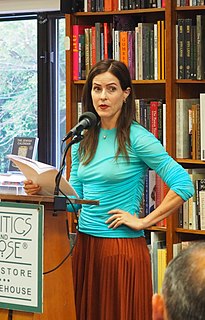A Quote by Steve Inskeep
I have reported enough about Islam and terrorism to recognize that a lot of what is at stake is not strictly religion, even though it's also about power and control. In the case of Karachi, like so many other growing cities, it's also about land, mafias, gang activity.
Related Quotes
If I read the Bible, I can also find a few harsh verdicts. Every religion can be abused. We're not talking here about religion and faith. We are talking about the politicization of Islam, and, by the way, it is first and foremost exerting pressure on the majority of peaceful Muslims who live here in Germany.
Islam is a revolutionary faith that comes to destroy any government made by man. Islam doesn't look for a nation to be in better condition than another nation. Islam doesn't care about the land or who own the land. The goal of Islam is to rule the entire world and submit all of mankind to the faith of Islam. Any nation or power in this world that tries to get in the way of that goal, Islam will fight and destroy.
I think all the songs [at Moth] are about different things, but if we were to speak about it as a whole, it's really about, it's about joy, and about sensuality and vulnerability and also fun, energy, living in New York in 2015, being out of control, wanting to be in control, failing! It's a sort of story of our lives.
ISIS is not Islam. No, I'm not saying that. The government says that. The left, the media says it. ISIS is not Islam. You've heard Obama say that. ISIS is making a mockery of Islam. In fact, what you really need to understand about the way our government looks at Islam, they look at Islam as anti-terror as well. Islam is anti-terrorism. Therefore, no terrorism can actually be Islamic.
I tried not to write about the O.J. Simpson case too much because so much has already been said about it, but there are a lot of questions left worth asking. However, the case is very useful to illustrate other points. The case is a common reference point because everybody knows the ins and outs of it, more than any other case in this generation, so it becomes useful to reference other points. In itself, there aren't that many questions about it that remain unanswered.
But once we recognize that many ideas that are taken to be quintessentially Western have also flourished in other civilizations, we also see that these ideas are not as culture-specific as is sometimes claimed. We need not begin with pessimism, at least on this ground, about the prospects of reasoned humanism in the world.































